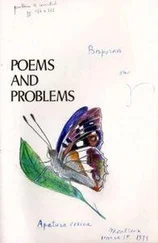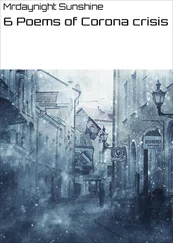Ghassan Zaqtan - 33 poems
Здесь есть возможность читать онлайн «Ghassan Zaqtan - 33 poems» весь текст электронной книги совершенно бесплатно (целиком полную версию без сокращений). В некоторых случаях можно слушать аудио, скачать через торрент в формате fb2 и присутствует краткое содержание. Жанр: Поэзия, на английском языке. Описание произведения, (предисловие) а так же отзывы посетителей доступны на портале библиотеки ЛибКат.
- Название:33 poems
- Автор:
- Жанр:
- Год:неизвестен
- ISBN:нет данных
- Рейтинг книги:4 / 5. Голосов: 1
-
Избранное:Добавить в избранное
- Отзывы:
-
Ваша оценка:
- 80
- 1
- 2
- 3
- 4
- 5
33 poems: краткое содержание, описание и аннотация
Предлагаем к чтению аннотацию, описание, краткое содержание или предисловие (зависит от того, что написал сам автор книги «33 poems»). Если вы не нашли необходимую информацию о книге — напишите в комментариях, мы постараемся отыскать её.
33 poems — читать онлайн бесплатно полную книгу (весь текст) целиком
Ниже представлен текст книги, разбитый по страницам. Система сохранения места последней прочитанной страницы, позволяет с удобством читать онлайн бесплатно книгу «33 poems», без необходимости каждый раз заново искать на чём Вы остановились. Поставьте закладку, и сможете в любой момент перейти на страницу, на которой закончили чтение.
Интервал:
Закладка:
I want to memorize you like that song in first grade
The one I hold onto
Complete and
With no mistakes
The lisp, the tilt of the head, off key
The small feet pounding the concrete so eagerly
The open palms pounding the benches.
They all died in the war
My friends and classmates
Their little feet
Their eager little hands… they still pound the floors of each room
They pound the tables;
And still pound the pavements, the backs of the passersby, their shoulders.
Wherever I go
I see them
I hear them.
Additions To The Past
The letters in the widow's room
In the straw basket
On the bed purged of sleep
In the intention to fast which lurks
In the air of the corridor.
The vegetables, normally purchased in the morning
The tickets,
The dawn bus on a Thursday
The pillows
The candles
The forbearance…, where holy phrases are
Gaudily etched
In the carvings
The edge of the cupboard from the crack of the door
The door itself… where the assembled hymns
Flutter like kerchiefs on the darkness of the plain.
The shadow of the air
The novel she has not returned to the shelf,
She cannot remember!
Its heroes fall dead to the ground
She sweeps them up
One after the other
With her broom, her reproaches and her prayers
The letters remain unopened
The dead
Return through the crack of the door
To steal the flower vase
The orange sheet
And the covers
The Trench
How strange are the days of salt
It is as if they belong to others
And like a well-plotted tragedy
Just brought to a close
They begin to breathe as we remember them
The hills forgotten in the boredom of the slopes
The mountains that aspire towards the west
The wandering caravans of death
The faith of the dead, complete.
The hands that emerge from the darkness
To tell you everything
The deep fraternity that does not lead to wisdom
The words no longer suitable for high places
Strange are the days of salt
Now alone in the abyss
Disparaged like rotten seed
And while we ascend,
Because that's all we can do
The days roll away into the distance behind us,
Abandoned, and can never return
Our dark complexions
Our attempts at sleep
…..Names, endlessly long titles
Dialects also
Proclaiming a countryside
No longer necessary.
How strange are the days of salt
They are not even worthy to be remembered.
Guide
He pointed for us . . .
this way.
And disappeared
in the wreckage of houses
after the explosion
his fingers in the wall-gap
still pointing:
this way . . .
this way.
Handkerchief
Nothing's left to say between us
everything went
into the train that hid its whistle
in the smoke that didn't become a cloud
in the departure that gathered your limbs
Nothing's left to say between us
so let your death be
the insight of dazzling silver
and let the sun of those cities
be a rose on your shoulders
Translated from the Arabic by Fady Joudah
An Enemy Descends The Hill
As he descends,
As we watch him descend,
As he conveys to us that he is
About to descend
Warily, silently
His illicit presence
As he carefully listens at the shrubs.
His fear as he descends
The withheld silence
That he is not 'us'
Not 'here'
Death begins.
He seizes a flower
Just a flower
With no message to convey
No vase for it.
From the hill
He can see
The military checkpoint
The paratroopers
He can see the desperate people;
The slopes of the mountains;
The only path
Where their feet will leave imprints in the rocks
In mud and water.
He can also see
The losses from the hill
Left hurriedly behind
The equivocation of shadows
Where the mustached enemy
Resembles the dead Arabs here.
In the slopes of the mountains
The caves will all appear peaceful
The road always look the same.
As he descends
The caves in the mountains
Continue to stare
They blink in the cold.
Translated from the Arabic by Fady Joudah
The Camp Prostitute
What those intend who visit her house
Is palpably felt
So pure, so proud.
Those who stayed late in the fields
Will find her hanging near the little trees
The five mossy steps
Then the bougainvillea plant by the door.
Her bracelets jingling in their sleep like a phantom horse
Her undergarments coloring their dreams
Her breasts well trodden like the path to the mill
Her ritual movements between the bed and the wash basin
Like a popular song all the rage.
The still life on the wall
The sheets and two pillows
The scent of cheap cologne
The nails behind the door
Where the smell of their clothes still lingers
The jasmine outside the window
The numbed convolutions of her body
The strain pervading her silence
The intentions of those passing through to her house
The passersby and the visitors,
The students, clerks and chickens
The vans, the guards and the dogs,
The porters, the cats and the vegetable sellers
The fathers and sons
All those who have left their smell in her broken sleep
They were all of them there
Behind the kids
The cart
The coffin
So pure, on their way to her destination.
Translated from the Arabic by Fady Joudah
Beirut, August 1982
How I wish he had not died
in last Wednesday's raid
as he strolled through Nazlat al-Bir —
my friend with blond hair,
as blond as a native of the wetlands of Iraq.
Like a woman held spellbound at her loom,
all summer long the war was weaving its warp and weft.
And that song, O Beiruuuuut!,
sang from every single radio
in my father's house in Al-Karama —
and probably in our old house in Beit Jala
(which, whenever I try to find it in the maze of the camp,
refuses to be found).
That song sang of what we knew —
it sang of our streets, narrow and neglected,
our people cheek by jowl in the slums made by war.
But the song did not sing about that summer in Beirut,
it did not tell us what was coming —
aeroplanes, bombardment, annihilation…
The song was singing while my friend from Iraq —
who'd thought I was Moroccan from the countryside there —
limped bleeding to his death…
His blond hair will never fade,
a beam of light seared into memory.
Translated from the Arabic by Fady Joudah
A Young Man From Al-Jaheer Expresses His Regrets…
I must leave this town:
a town where the sun never shines on me,
where there's never any shade,
Интервал:
Закладка:
Похожие книги на «33 poems»
Представляем Вашему вниманию похожие книги на «33 poems» списком для выбора. Мы отобрали схожую по названию и смыслу литературу в надежде предоставить читателям больше вариантов отыскать новые, интересные, ещё непрочитанные произведения.
Обсуждение, отзывы о книге «33 poems» и просто собственные мнения читателей. Оставьте ваши комментарии, напишите, что Вы думаете о произведении, его смысле или главных героях. Укажите что конкретно понравилось, а что нет, и почему Вы так считаете.












